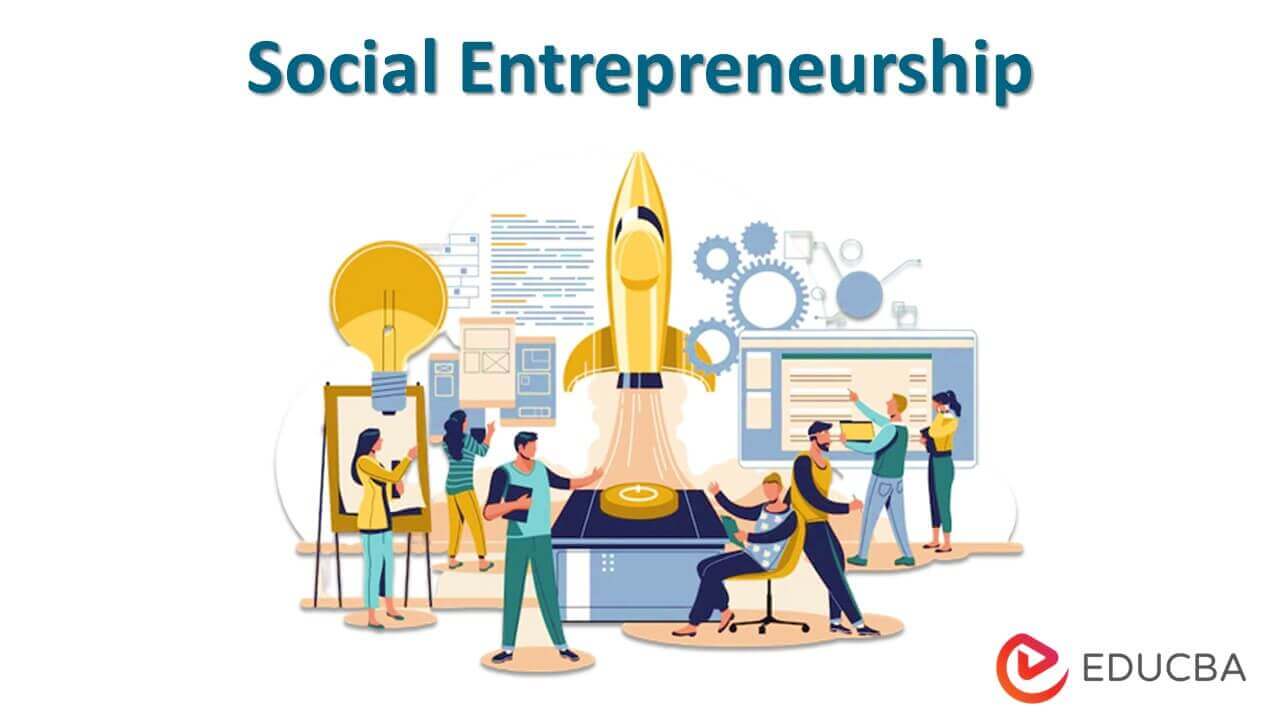
Introduction to Social Entrepreneurship Dummies
Social Entrepreneurship Dummies Guide – Before going into the details about how social entrepreneurship can change society. We first need to understand what a social entrepreneur is and what we mean by social entrepreneurship.
Who is a Social Entrepreneur?
Social entrepreneurs are visionaries who try to bring about positive change in society by practically applying their social entrepreneurship ideas and strategies to resolve social problems in society. These problems are vast and diverse. Social issues and problems are global and not limited to a particular community or region. Common challenges include inadequate education and healthcare facilities, environmental threats, inefficient governance and political systems, poverty, unemployment, and inequality based on gender, caste, and creed. Additionally, increasing crime rates and other pressing social concerns need to be addressed globally.
A social entrepreneur is an individual who works with an initiative to develop pioneering ideas and solutions for the existing social problems and issues faced by society. They try to resolve these problems by changing the working system and people’s mindset, spreading awareness about how to tackle these problems and issues, and developing social entrepreneurship resources to empower the community. They try to convince society to think in different dimensions and directions. Social entrepreneurs develop simple, understandable ideas that people can understand and use to better and develop society. They aim to identify and create efficient changemakers or role models who will, in turn, motivate the masses to develop their ideas, solutions, and strategies to resolve these social issues. In short, a social entrepreneur is an agent or mediator who thrives on bringing about positive change in society.
How do these Social Entrepreneurs Function?
They first analyze the social problem/issue to be tackled. Social entrepreneurs actively identify the underlying causes and roots of social problems by conducting thorough research, analyzing field findings, conducting surveys, and making observations. These methods enable them to understand the issues at hand, informing their approach to developing effective solutions for positive social change. Then they study and link them to the existing societal patterns and emerging social entrepreneurship trends. Then, ideas and strategies are developed to change the people’s mindset, bringing change in their lifestyle and attitude. They try to identify and develop change-makers from society; these change-makers work as role models, motivators, and leaders to bring about positive, progressive changes in the system.
These changemakers form a team, social entrepreneurship network, and a platform for people with similar goals and objectives. This platform allows the interchange of ideas, feedback, and the development of effective strategies to resolve the problem. This platform also associates the funders who want to associate themselves with bringing about positive change in society and the change-makers. Social entrepreneurs collaborate with social innovators, funders, grass-roots leaders, social workers, and community organizations to bring effective, long-lasting societal changes.
What does Social Entrepreneurship Mean?
So we know who a social entrepreneur is. Now we need to understand what social entrepreneurship means. It is a process through which we try to resolve its problems and issues using social entrepreneurship business techniques. Here, the entrepreneur aims to improve his organization’s performance and profit and provide positive profits to society. There is no concrete definition of social entrepreneurship, as people from diverse fields are associated with it- philosophers, social activists, environmentalists, and socially oriented professionals. Social entrepreneurs have different strategies for changing society; some provide contracted work to public establishments; others provide social entrepreneurship funding through grants and donations and develop community social and economic assets and resources.
What Social Entrepreneurship Focuses on?
It focuses on gaining an understanding of how a social problem develops and how an entrepreneur, with the use of his innovative, practical ideas and business strategies, develop solutions to resolve the problem; and motivates him to utilize the available social entrepreneurship resources to overcome the problem to benefit the society as a whole. Social entrepreneurs utilize the various available resources to create a more progressive society. As social entrepreneurship does not have a concrete definition, groups focused on social entrepreneurship can be categorized into:
- Community-based enterprises; are based on societal ventures. The community as a whole utilizes the capital to empower itself.
- Socially conscientious enterprises; these enterprises focus on sustainable development through social gains.
- Social service organizations and professionals; these work to expand social capital for individuals, communities, and organizations.
- Socio-economic enterprises focus on bringing profits to individuals and non-profit social change in the community.
Apart from these, some organizations focus on social entrepreneurs’ empowerment; they create a platform to connect these social entrepreneurs with like-minded people, mentors, and funding agencies. They help in further strengthening and fortifying the various social entrepreneurship model.
Learn marketing concepts and apply them in the real world. Plan and implement promotional campaigns. Become a successful marketing manager with our practical training.
Factors in the Success of Social Entrepreneurship
Social entrepreneurship’s success depends on the social entrepreneurship skills, talent, and qualities present in a social entrepreneur. These social entrepreneurs can bring about major positive social changes with their innate talents and skills. To bring about this change, they need to:
-
Identify the Social Issue/Problem
Social entrepreneurs are zealous about solving the problem in society. They are urged to take positive steps to resolve these issues using social action and resource development. This may include changing the system’s working pattern, changing people’s mindset and attitude, creating awareness, or pulling in resources for better social entrepreneurship and education, health, or livelihood facilities.
-
Developing a Social Mission
The focus should be on social ventures. These ventures should attempt to improve the community infrastructure, the people’s livelihood, improve the standard of living of the individuals, and facilitate improvement in the environment. The social entrepreneur should always focus on how the organization’s profits can benefit the community and the environment.
-
Develop Support
Every social entrepreneur should develop plans and strategies to determine the efficient management of problems. He will have to identify the resources that would make the mission successful. This may require him to seek support from like-minded people, experts in the field, and funders who would support him financially to achieve the goals and objectives. He will also require local help from people to identify prospective change-makers who would act as role models for the masses to persuade them to bring in social change through a positive mindset and action.
-
Develop Sustainable Models
The entrepreneur’s aim should be to develop such a business that would bring in a profit for his organization and benefit society as a whole. They need to develop future strategies to provide a sustainable livelihood, income, and resources to the community’s people.
-
Impact Assessment
Regular assessment of results and outcomes is crucial for successful social entrepreneurship. This involves monitoring and evaluating the social impact of the venture, such as employment creation and changes in community’s standard of living. Recording and documenting these achievements allows for future comparison, raising awareness of mission accomplishments and informing strategic planning. This also helps identify additional resources and support systems needed for further success and improvement.
People perceive that changing society for the better is impossible; it requires lots of effort and resources. At the same time, the social change process can begin with a single determined individual; who strives and dreams for the community’s betterment as a whole. One should have a vision and mission to make society a better place to live. An individual who can deeply understand and analyze social issues and problems can analyze the underlying reasons and factors responsible for such a problem; can develop ideas, practical strategies, and solutions to tackle them can start a positive initiative to bring positive change in society.
In this process, one needs to generate a support system in the form of prospective change-makers, role models, leaders, and funders who would assist in bringing about the required social change. The process of positive social change in society through social entrepreneurship will influence, benefit, and enlighten many other fields. Donors and patrons will find an avenue to invest their grants and funds; policymakers will get an idea of developing a similar problem-solving model that will benefit the nation. Professionals will find new employment and career platforms such as AgilePR or other career-oriented marketplaces, and the youth will get inspiration and motivation to become prospective change-makers. It will be encouraged to participate in the change-making process.
Characteristics
It is a platform or way in which people come together and work to create an equal, just, and sustainable society. They should work to bring positive social, economic, and environmental outcomes for society. Characteristics are as follows:
- It should be based on the values of equality and justice.
- Its objectives should focus on investing the surplus in developing resources for the community, not just making economic profit.
- The organization structure and composition should be based on collective and joint principles.
Social entrepreneurs develop employment and livelihood opportunities; they provide on-the-job training and other social entrepreneurship training programs to the unemployed, disabled, and vulnerable youth. They develop practical strategies to overcome social problems; for example, through microfinance policies, they provide livelihood and economic security to the unemployed, women, and the community’s underprivileged section. They create social capital for poverty alleviation and economic development. They strive to create equality and justice in society.
Social entrepreneurship is a process of positively impacting society through innovative solutions to social issues. Social entrepreneurs possess inherent talents to understand and solve problems, driven by a mission to empower change-makers. They engage and motivate individuals while creating support systems for meaningful change. Their goal is to create a better, more sustainable future for society.
Social entrepreneurs aim to create an equal and just society by providing economic and social security, livelihood opportunities, and raising living standards. They drive policy changes, provide problem-solving models, and work for economic profit while investing in social and economic assets for the community. They inspire and motivate youth to take action for positive social change. Social entrepreneurs address global issues such as poverty, unemployment, gender inequality, inadequate education and healthcare, and inefficient governance. They create global platforms for like-minded individuals to collaborate as a team in addressing these challenges.
Recommended Articles
This has been a guide to Social Entrepreneurship Dummies. Here we have discussed the basic concept, how it functions, its Characteristics, and Factors in the Success of Social entrepreneurship. You may look at the following articles to learn more –




